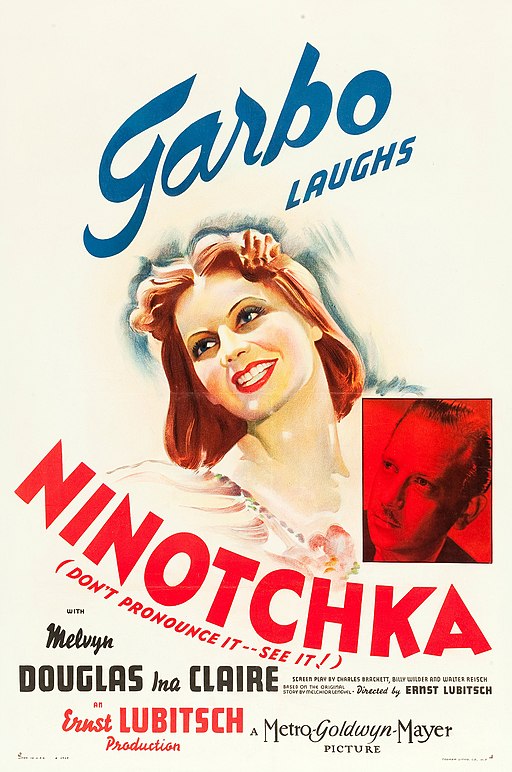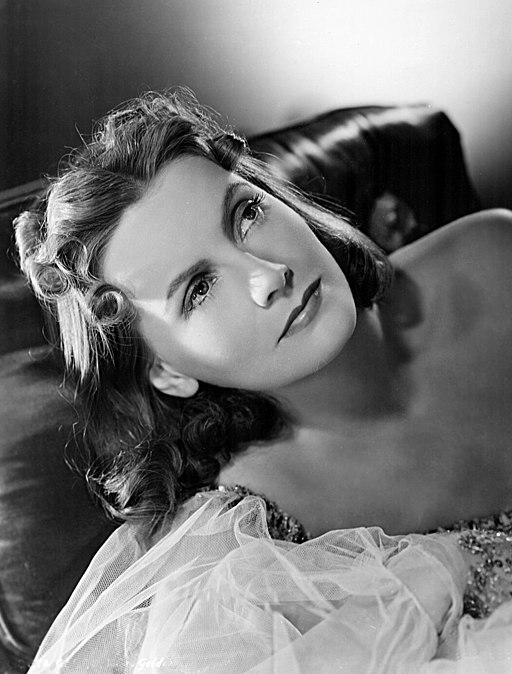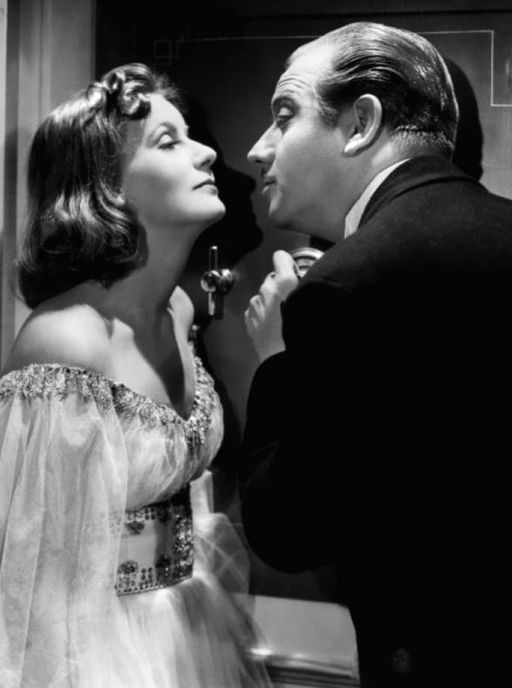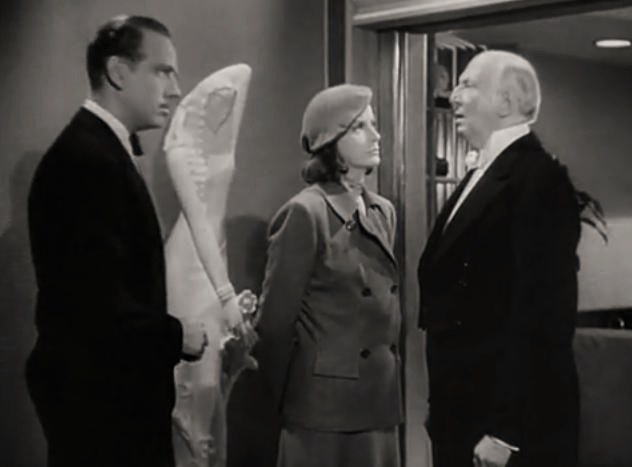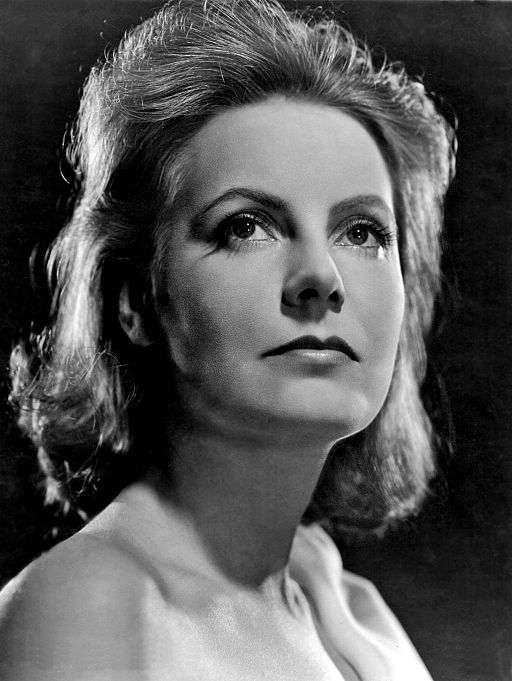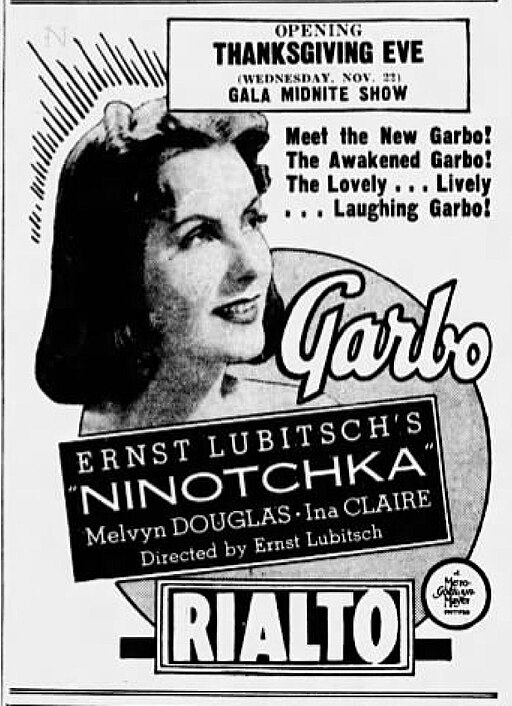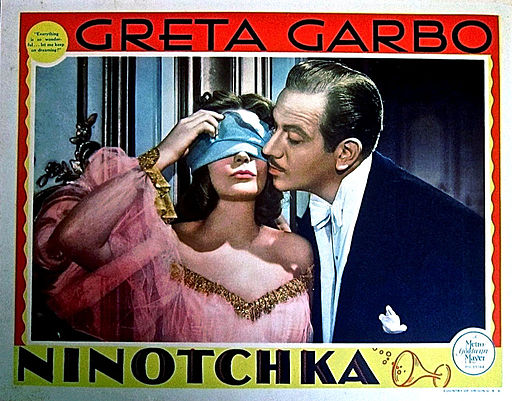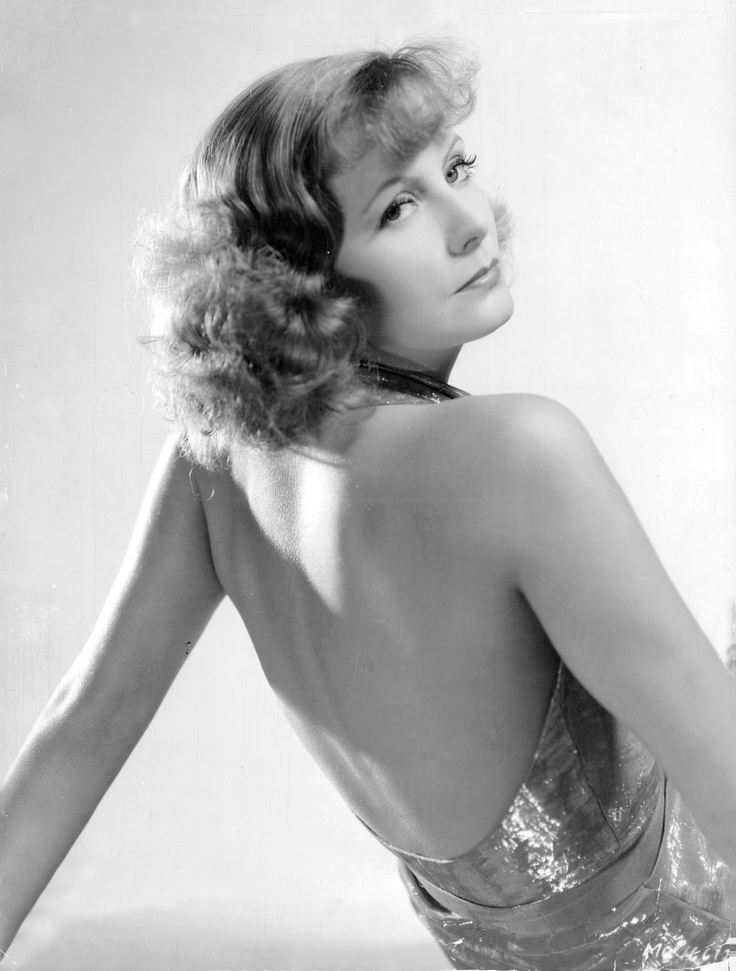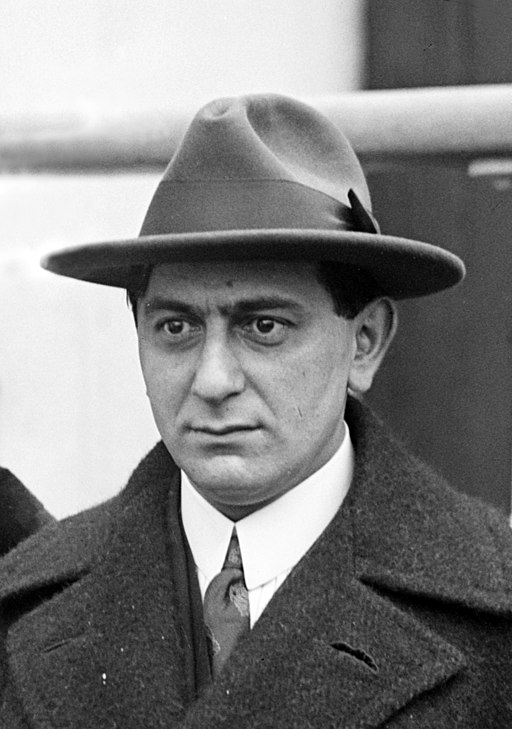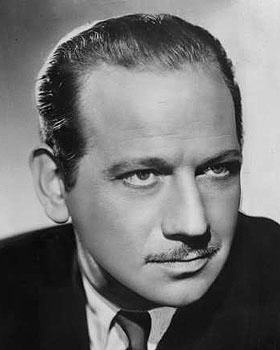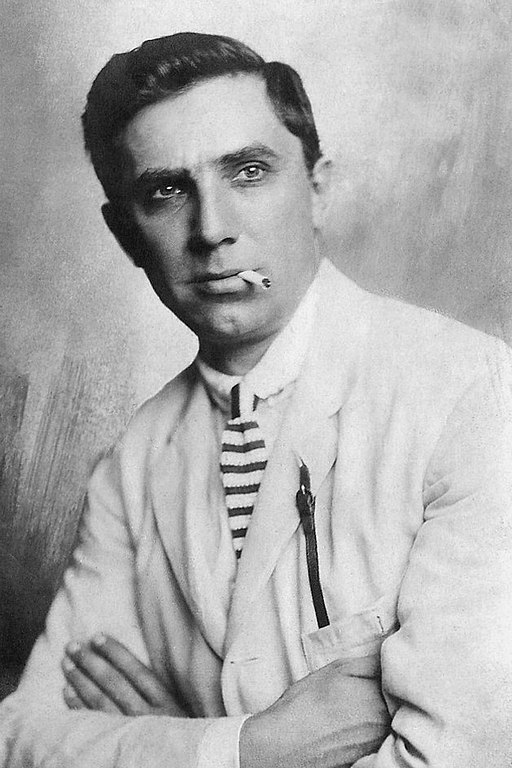Ninotchka - 1939
back| Released by | Metro-Goldwyn-Mayer |
| Director | Ernst Lubitsch |
| Producer | Ernst Lubitsch |
| Script | Screenplay by Charles Brackett, Billy Wilder, and Walter Reisch. Based on a story by Melchior Lengyel |
| Cinematography | William H. Daniels |
| Music by | Werner R. Heymann |
| Running time | 110 minutes |
| Film budget | Not disclosed |
| Box office sales | Also not disclosed, but the film was a significant success upon its release |
| Main cast | Greta Garbo - Melvyn Douglas - Ina Claire - Bela Lugosi |
Ninotchka – 1939
A romantic satire contrasting the ideologies of East and West
"Ninotchka" is particularly noted for Greta Garbo's performance, which showcased her in a comedic role, a departure from her typical dramatic characters. The film's script, co-written by Billy Wilder, is celebrated for its wit and humor.
The storyline revolves around a stern, no-nonsense Soviet envoy (Garbo) who is seduced by the charms of Paris and a playful Count (Douglas).
The film is often remembered for its tagline, "Garbo Laughs!", highlighting the novelty of seeing the typically serious actress in a lighthearted role. Despite its comedic tone, "Ninotchka" also subtly critiques the political tensions of its time, especially between the capitalist West and the communist East.
Related
Ninotchka
Summary and Analysis
"Ninotchka" is a romantic comedy-drama set in the late 1930s. The film opens in Paris, where three bumbling Soviet agents, Iranoff, Buljanoff, and Kopalski, are on a mission to sell confiscated jewels on behalf of the Soviet government. Their plans go awry when the former owner, Grand Duchess Swana, learns of the sale and seeks to reclaim her property with the help of her suave boyfriend, Count Leon d'Algout.
The Soviet government then sends Ninotchka, a stern, no-nonsense envoy played by Greta Garbo, to oversee the operation. Her arrival in Paris marks a significant shift in the film's tone. Ninotchka, a devoted and humorless communist, slowly succumbs to the charms of Paris and the playful, sophisticated Count Leon.
As Ninotchka experiences the luxuries and freedoms of Parisian life, her icy demeanor begins to thaw. The film cleverly juxtaposes her rigid Soviet ideals with the indulgent, carefree lifestyle of Paris. Her growing affection for Leon, who represents everything she is supposed to disdain, further complicates matters.
Eventually, Ninotchka is torn between her duty to her country and her love for Leon. The film culminates in a choice between these two conflicting worlds.
Analysis of "Ninotchka"
Ernst Lubitsch's "Ninotchka" is a masterful blend of comedy, romance, and subtle political commentary. The film is often cited as a prime example of the "Lubitsch Touch," a term that signifies a blend of sophistication, wit, and elegance, coupled with an underlying understanding of human nature and its foibles.
Comedic Elements: The film's humor is multi-layered, combining slapstick, witty dialogue, and situational comedy. The transformation of Ninotchka from a stoic communist to a woman in love is both humorous and endearing.
Romantic Elements: The romance between Ninotchka and Leon is central to the film's plot. It’s a study in contrasts: the pragmatic communist meets the idealistic capitalist. Their romance is portrayed with a light touch but also with depth and sincerity.
Political Commentary: "Ninotchka" was made at a time when the world was on the brink of World War II, and tensions between different political ideologies were high. The film uses humor to critique and satirize both the capitalist West and the communist East, but it does so without being overtly political or alienating.
Greta Garbo's Performance: This film is notable for showcasing a different side of Greta Garbo, known for her dramatic roles. Her portrayal of Ninotchka's transformation is both comedic and nuanced, contributing significantly to the film's charm.
Cinematic Style: Lubitsch's direction and William Daniels's cinematography combine to create a visually appealing film. The contrast between the starkness of Ninotchka's Soviet world and the opulence of Paris is effectively used to reinforce the film’s themes.
In conclusion, "Ninotchka" stands out as a classic of its era, offering a unique blend of humor, romance, and subtle social commentary. Its enduring appeal lies in its ability to balance these elements seamlessly, driven by strong performances and expert direction.
Official Trailer of Ninotchka from 1939
Full Cast of Ninotchka:
Main Cast
- Greta Garbo as Nina Ivanovna "Ninotchka" Yakushova
- Melvyn Douglas as Count Léon d'Algout
- Ina Claire as Grand Duchess Swana
- Bela Lugosi as Comrade Razinin, the Soviet envoy in Paris
- Sig Ruman as Iranoff
- Felix Bressart as Buljanoff
- Alexander Granach as Kopalski
Supporting Cast
- Gregory Gaye as Count Alexis Rakonin
- Rolfe Sedan as Hotel Manager
- Edwin Maxwell as Mercier
- Richard Carle as Gaston
- George Tobias as Russian Visa Official
- Tamara Shayne as Anna, Ninotchka's maid in Russia
- Dorothy Adams as Jacqueline, Swana's maid
Analysis of the Direction of Ernst Lubitsch:
Ernst Lubitsch's direction in "Ninotchka" is a quintessential display of his famed "Lubitsch Touch," a term that encapsulates his unique style of filmmaking characterized by subtlety, sophistication, and a clever blend of humor and romance. In "Ninotchka," several aspects of Lubitsch's directorial prowess are prominently showcased:
Balancing Comedy and Romance
Lubitsch excelled at blending elements of comedy with romantic undertones. "Ninotchka" is a classic example where he seamlessly intertwines a love story with comedic elements. He handles the romance between Ninotchka and Count Leon with a light touch, allowing the chemistry between Greta Garbo and Melvyn Douglas to flourish naturally, while infusing their interactions with a subtle humor that is never overbearing.
Subtle Political Satire
Set against the backdrop of a politically tense pre-World War II era, Lubitsch used "Ninotchka" to offer commentary on the contrasting ideologies of the West and the Soviet Union. However, he did so with a subtlety that avoided overt political statements, instead relying on satire and humor. This approach made the film accessible and enjoyable to a wide audience, regardless of their political leanings.
Masterful Use of Wit and Dialogue
Lubitsch was known for his sharp, witty dialogue, which is evident in "Ninotchka." The script, co-written by Billy Wilder, Charles Brackett, and Walter Reisch, is filled with clever one-liners and exchanges that Lubitsch brought to life with impeccable timing and delivery. This effective use of dialogue contributed significantly to the film’s comedic impact.
Cinematic Technique
Lubitsch's direction was not just about the script and actors; his use of cinematography, framing, and mise-en-scène were also integral. He created visual contrasts between the opulent lifestyle of Paris and the austerity of the Soviet Union, enhancing the film's thematic elements. The way scenes were staged and shot added to the storytelling, providing visual humor and reinforcing character dynamics.
Eliciting Strong Performances
One of Lubitsch's strengths was his ability to draw out nuanced performances from his actors. In "Ninotchka," he guided Greta Garbo, known primarily for dramatic roles, in a performance that showcased her comedic talents. The supporting cast also delivered memorable performances, adding depth and humor to the film.
Subtlety and Implication
A hallmark of Lubitsch's style was his ability to suggest more than what was shown or said on screen. He often used implication and innuendo, trusting the audience to understand the underlying meanings. This approach added a layer of sophistication to his films, making them engaging and thought-provoking.
Analysis of Greta Garbo’s Performance:
Greta Garbo's role as Ninotchka in the film "Ninotchka" stands out as a significant departure from her previous work and showcases her versatility as an actress. This performance is notable for several reasons:
Departure from Dramatic Roles
Prior to "Ninotchka," Garbo was predominantly known for her dramatic roles, often portraying tragic, melancholic characters in films like "Anna Karenina" and "Camille." In "Ninotchka," however, she took on a comedic role, which was a stark contrast to her established screen persona. This shift demonstrated her range as an actress and her ability to adapt to different genres.
Character Transformation
Ninotchka is initially portrayed as a stern, humorless Soviet envoy, a representation of the austere and rigid communist ideology. Garbo skillfully embodies this persona, using her body language, facial expressions, and tone of voice to convey the character's seriousness and dedication to her political beliefs. As the film progresses, Ninotchka gradually becomes enamored with the charms of Paris and the attentions of Count Leon. Garbo's portrayal of this transformation is subtle and nuanced, effectively conveying the internal conflict of a character caught between ideology and emotion.
Comedic Timing and Expression
Garbo's performance is marked by excellent comedic timing and the ability to deliver lines with dry wit and understated humor. Her famous line, "The last mass trials were a great success. There are going to be fewer but better Russians," is delivered with a deadpan seriousness that underscores the film's satirical tone. Her ability to convey humor through a stoic facade is a testament to her skills as an actress.
Chemistry with Co-Stars
Garbo's interactions with Melvyn Douglas, who plays Count Leon, are central to the film's narrative. Their chemistry is palpable and adds depth to the romantic subplot. Garbo manages to portray a gradual softening of Ninotchka's character without losing the essence of her strong-willed personality, making the romance believable and engaging.
Symbolism and Representation
Ninotchka, as portrayed by Garbo, can be seen as a symbol of the ideological clash between communist austerity and the indulgent lifestyle of the West. Through her character's journey, the film explores themes of freedom, love, and the transformative power of personal experiences. Garbo's portrayal brings a human face to these themes, making them relatable and compelling.
Conclusion
Greta Garbo's performance in "Ninotchka" is a highlight of her career. She successfully transitioned from a dramatic actress to a comedic one, demonstrating her range and talent. Her portrayal of Ninotchka is a complex blend of stoicism, vulnerability, humor, and warmth, which contributes significantly to the film's enduring appeal. This role not only showcased Garbo's versatility but also cemented her status as one of the great actresses of her time.
Triva from the movie “Ninotchka”:
What is the meaning of “Ninotchka” in Russian?
The name "Ninotchka" doesn't have a specific meaning in Russian, but it is a diminutive or affectionate form of the female name "Nina." The use of "Ninotchka" in the film likely serves to add a touch of affectionate familiarity to the character, contrasting with her initially stern and impassive demeanor.
The strange Ninotchka hat
The hat worn by Greta Garbo in "Ninotchka" is a noteworthy aspect of her character's costume and has been a subject of discussion among film enthusiasts and fashion historians. The hat, often described as 'strange' or 'unusual', plays a significant role in defining her character's initial persona in the film. Here are some key points about the hat:
- Visual Representation of Character: The hat's severe and somewhat austere style reflects Ninotchka's character when she first arrives in Paris. As a Soviet envoy, her outfit, including the hat, is meant to project seriousness, practicality, and a no-nonsense approach, aligning with her initial portrayal as a stoic, committed communist.
- Contrast with Parisian Fashion: The hat starkly contrasts with the more fashionable and flamboyant styles seen in Paris at the time. This visual contrast underscores the cultural and ideological differences between Ninotchka's Soviet background and the Western world she finds herself in.
- Symbol of Transformation: As Ninotchka's character evolves throughout the film, her attire changes as well, becoming more in line with Parisian fashion. The hat, therefore, serves as a symbol of her initial rigidness and the gradual softening of her character as she becomes more influenced by the charms of Paris and Count Leon.
- Fashion Statement: While the hat might seem strange or unconventional by contemporary standards, its design was quite in line with the era's fashion trends, which often included unique and bold headwear. Garbo was known for her sense of style, and her costumes in films often influenced fashion trends.
- Cinematic Tool: From a filmmaking perspective, the hat and Garbo's entire costume were carefully chosen to enhance the storytelling. Costume design is an integral part of character development in cinema, and in "Ninotchka," Garbo's wardrobe, including her hat, is used effectively to communicate aspects of her character's personality and journey.
Analysis of the Performance of Melvyn Douglas:
Melvyn Douglas's role as Count Leon d'Algout in "Ninotchka" is pivotal to the film's narrative and its thematic exploration. His portrayal of Count Leon is multi-faceted and contributes significantly to the film's charm and depth. Here's an analysis of his role:
Charming Antithesis to Ninotchka
Count Leon d'Algout is crafted as a direct contrast to Greta Garbo's Ninotchka. While Ninotchka is serious, ideologically driven, and utilitarian, Leon is playful, carefree, and indulgent, embodying the quintessential debonair European aristocrat. Douglas plays Leon with a natural charm and wit, making him immediately likable and engaging. His character represents the allure and seduction of the Western lifestyle, which is central to the film's exploration of the clash between different ideologies.
Romantic Lead with Depth
Douglas's portrayal of Leon goes beyond the typical romantic lead. He brings depth to the character, displaying not just charm and frivolity but also sincerity and vulnerability, especially in his interactions with Ninotchka. This complexity adds to the believability of the romance between the two protagonists and helps the audience invest in their relationship.
Comedic Timing and Interaction
Douglas exhibits excellent comedic timing, crucial for the film's genre. His interactions with Ninotchka are filled with humorous banter and witty repartee, which Douglas delivers with ease and finesse. His ability to play off Garbo's more stoic character adds a dynamic layer to their scenes together, enhancing the film's comedic element.
Subtle Character Development
Throughout the film, Leon undergoes subtle changes as he falls genuinely in love with Ninotchka. Douglas skillfully portrays this transformation, gradually shifting from a man who initially seems to be merely amused by Ninotchka's seriousness to one who deeply cares for her. This shift is critical to making their relationship feel real and earned.
Cultural and Ideological Symbolism
Leon, as played by Douglas, is more than just a romantic foil; he symbolizes a lifestyle and a set of values in stark contrast to Ninotchka's. His character embodies a critique of both the frivolous nature of the aristocratic lifestyle and the rigid austerity of Soviet communism. Douglas's performance ensures that Leon is not a caricature but a representation of a more nuanced perspective.
Memorable Quotes from “Ninotchka”:
Ninotchka's Deadpan Humor:
"The last mass trials were a great success. There are going to be fewer but better Russians."
On Paris and Ideals:
Ninotchka: "Why should you carry other people's bags?" Porter: "Well, that's my business, Madame." Ninotchka: "That's no business. That's social injustice." Porter: "That depends on the tip."
Ninotchka's Stoic Outlook:
"I have heard of the arrogant male in capitalist society. It is having a superior earning power that makes you that way."
Count Leon's Charm:
"Ninotchka, it's midnight. One half of Paris is making love to the other half."
Cultural Differences:
Ninotchka: "Must you flirt?" Leon: "Well, I don't have to, but I find it natural." Ninotchka: "Suppress it."
Comment on Soviet Life:
Ninotchka: "We don't have men like you in my country." Leon: "Thank you." Ninotchka: "That wasn't a compliment."
On Love and Ideology:
Leon: "Do you like me just a little bit?" Ninotchka: "Your general appearance is not distasteful." Leon: "Thank you." Ninotchka: "The faint aroma of your cologne is not offensive." Leon: "Thanks again."
Ninotchka's Transformation:
"Comrades, this man has taken me to dine in a place where they danced... I have danced. I have had a very good time. If we can get what we want, let's dance."
These quotes reflect the film's clever blend of satire, romance, and political commentary. The witty dialogue, especially from Greta Garbo's character Ninotchka, showcases the film's unique humor and the skillful scriptwriting by Charles Brackett, Billy Wilder, and Walter Reisch.
Awards and Nominations:
Academy Awards (1940)
Best Picture: Nominated
- "Ninotchka" was nominated for Best Picture, a significant honor, reflecting its critical acclaim and popularity.
Best Actress in a Leading Role (Greta Garbo): Nominated
- Greta Garbo's performance as Ninotchka earned her a nomination for Best Actress. This nomination underscored her successful transition from dramatic roles to comedy.
Best Writing, Screenplay: Nominated
- The film's screenplay, written by Charles Brackett, Billy Wilder, and Walter Reisch, was nominated for its witty and sophisticated script.
Best Art Direction: Nominated
- The film's art direction, which played a key role in setting the tone and atmosphere, received a nomination.
Other Nominations and Awards
New York Film Critics Circle Awards (1939):
- Best Actress (Greta Garbo): Won
- This win at the NYFCC Awards was a testament to Garbo's standout performance in the film.

